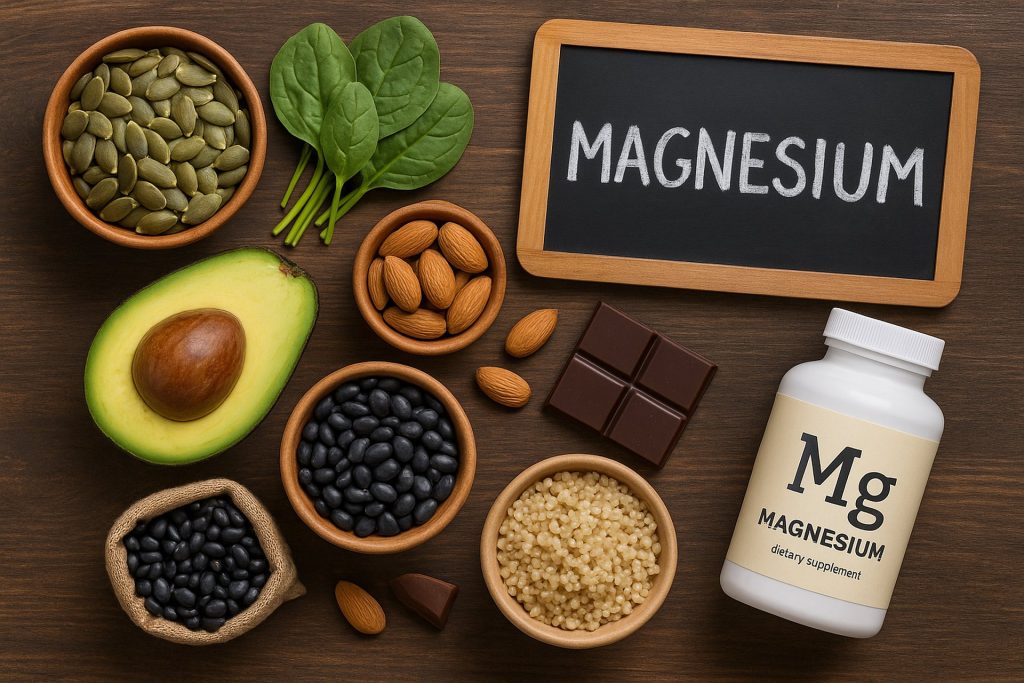Magnesium and Energy: The Vital Mineral You Might Be Missing

Magnesium is a crucial mineral involved in over 300 biochemical reactions in the body — and one of its most important roles is energy production. Yet millions of people are deficient in magnesium, unknowingly dealing with fatigue, poor sleep, and low stamina. Let’s explore how magnesium fuels your energy and how to get enough of it.
How Magnesium Supports Energy
1. Boosts ATP Production
Magnesium is required to activate ATP (adenosine triphosphate) — the body’s main source of cellular energy. Without it, your cells literally can’t produce energy efficiently.
2. Reduces Fatigue
Low magnesium can cause chronic fatigue, muscle weakness, and poor concentration. Restoring magnesium levels often results in noticeable improvements in vitality.
3. Regulates Muscle and Nerve Function
Magnesium balances calcium and potassium in the muscles and nervous system, preventing cramps, spasms, and the “wired-but-tired” feeling.
4. Improves Sleep Quality
Better sleep = better energy. Magnesium helps the body relax by activating GABA receptors, which calm the brain and nervous system.
Common Signs of Magnesium Deficiency
- Constant tiredness or weakness
- Muscle cramps or twitches
- Trouble sleeping
- Anxiety or restlessness
- Headaches or migraines
- Irregular heartbeat
Who’s Most at Risk of Low Magnesium?
- People under chronic stress
- Athletes or those who sweat heavily
- Individuals with digestive issues (IBS, Crohn’s)
- People with high alcohol, caffeine, or sugar intake
- Older adults
Best Dietary Sources of Magnesium
| Food | Magnesium per serving |
|---|---|
| Pumpkin seeds | 168 mg (1 oz) |
| Spinach (cooked) | 157 mg (1 cup) |
| Almonds | 80 mg (1 oz) |
| Black beans | 120 mg (1 cup cooked) |
| Avocados | 58 mg (1 medium) |
| Dark chocolate | 64 mg (1 oz) |
| Quinoa | 118 mg (1 cup cooked) |
Supplementing Magnesium
Look for high-absorption forms such as:
- Magnesium glycinate (calming, gentle on stomach)
- Magnesium citrate (good for digestion)
- Magnesium malate (great for energy and muscles)
✅ General dose: 200–400 mg/day, preferably with food.
Conclusion
If you’re low on energy, the solution might not be more coffee — it could be more magnesium. This mineral plays a key role in how your body creates and uses energy, supports restful sleep, and powers your muscles and brain. A few dietary changes or a quality supplement could make all the difference.




